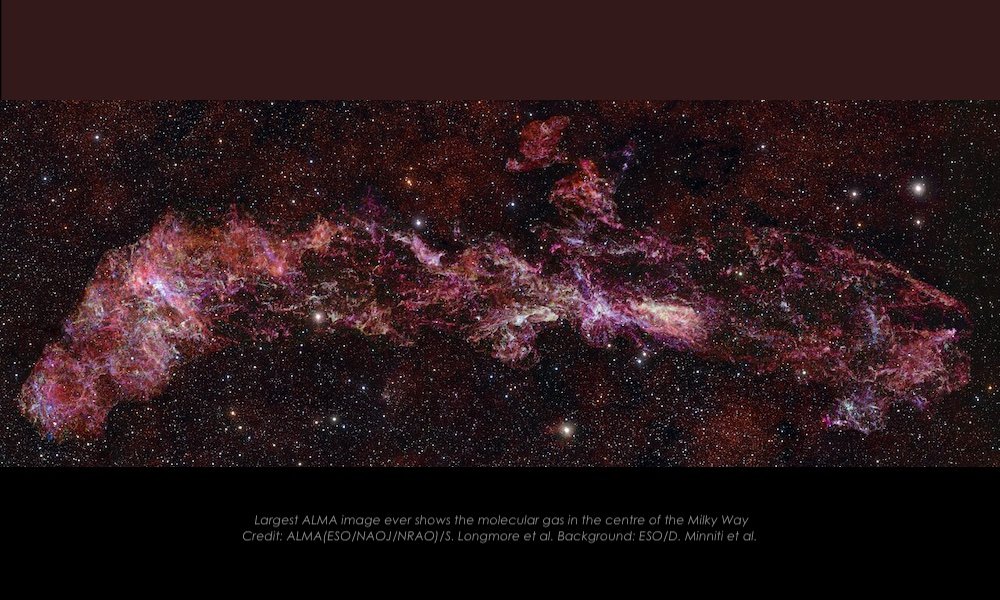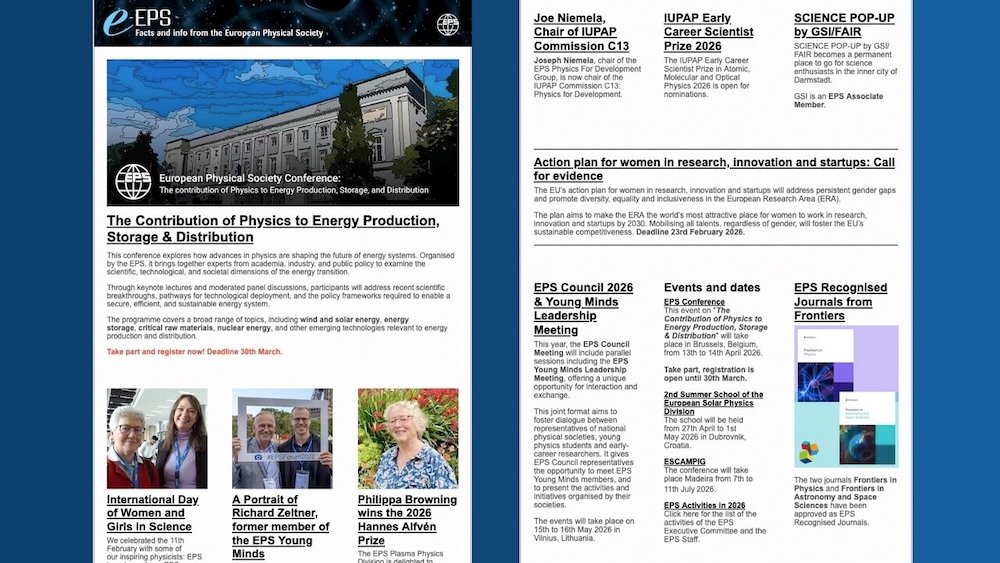Mulhouse, 23rd May 2025. The European Physical Society is pleased to announce that
- Daniela Bortoletto from Particle Physics at the University of Oxford, UK is the laureate of the Emmy Noether Distinction 2024 (full career) “for revolutionising silicon detector technology, that enabled the discoveries of the top quark and Higgs boson, and pioneering key experimental methods now central to high-energy particle physics, as well as for her important engagement for female undergraduate students.”
- Doris Reiter of the Faculty of Physics of the Technical University of Dortmund, Germany, is awarded the Emmy Noether Distinction 2024 (mid-career) “for her groundbreaking contributions to theoretical photonics and quantum technology, transformative leadership, and innovative outreach, exemplified by the SUPER scheme and the QuanTour project.”
Daniela Bortoletto studied Physics at the University of Pavia, specializing in particle physics with a thesis entitled “Study of states with hidden strangeness at the Omega’ spectrometer”. She then obtained her master’s degree at the University of Syracuse, U.S.A. and also did her PhD there, defending a thesis entitled “Exclusive and Inclusive Semileptonic decays of the B meson”. She moved on to Purdue University, first as a postdoc, and then was assistant, associate, and full professor, and finally E. M. Purcell Distinguished Professor. Twelve years ago, she came back to Europe as Professor of Particle Physics at the University of Oxford; since 2015 she has been Senior Kurti Fellow in Physics at Brasenose College and since 2018 head of Particle Physics at the University of Oxford.
Professor Bortoletto played a pivotal intellectual role in two of the most significant discoveries in particle physics over the past 30 years: the discovery of the top quark at Fermilab near Chicago, USA, in 1995, and the discovery of the Higgs boson at CERN in Geneva, Switzerland, in 2012. These groundbreaking achievements were made possible, in part, by her visionary leadership in the development of silicon-based detector technologies.
From early in her career, Professor Bortoletto recognised the potential of silicon detectors –then an emerging technology – and was instrumental in advancing them into the highly sophisticated systems that now lie at the heart of modern particle physics experiments.
Professor Bortoletto harnessed the unique advantages of silicon integrated circuits – namely their speed, low power consumption, and radiation resistance – to design advanced particle detectors. She established a dedicated silicon detector laboratory at Purdue University where she spearheaded the development of the SVX II detector which was crucial to advancing top quark studies. She went on to make major contributions to the development of the radiation-hard silicon vertex detector for the CMS experiment at the Large Hadron Collider. Her work was instrumental in enabling the high-precision measurements that culminated in the discovery of the Higgs boson and has had a transformative impact on experiments at CERN.
Beyond her research, Daniela Bortoletto has been a member of many advisory panels to UK and US funding agencies, laboratories, and experiments, a leader in all the major community roadmap planning exercises in the US and Europe in the last decade. She has inspired future particle physicists by extensively teaching worldwide about silicon detectors. Daniela Bortoletto has worked with resolve and continuous commitment for the recognition of women in physics and has created a unique yearly occasion for young women physicists in the UK, the Conference for Undergraduate Women in Physics in the UK, where they can feel their strength and become more confident thanks to meeting inspiring role models. These conferences have empowered over a thousand young women in the past decade.
Doris Reiter studied Physics at the University of Münster and received her Ph.D. there in 2010 with a thesis entitled “All-Optical Spin Manipulation of a Single Manganese Atom in a Single Quantum Dot: A Theoretical Study”. During her PostDoc phase, she continued to study quantum dots and analysed the impact of electron-phonon interaction when using quantum dots for quantum information technology. She also spent one year at Imperial College London, where she expanded her work to light-matter interaction and plasmonics. In 2016 she was appointed as Junior Professor at the University of Münster and in 2022 she moved to the Technical University of Dortmund where she was awarded an extraordinary professorship in 2024. She now leads a research group in Theory of solid-state nanostructures for quantum technologies.
Doris Reiter’s work is situated at the interface between quantum optics and solid-state physics. She has developed groundbreaking theoretical models for non-classical light generation in various nanostructures, like semiconductor quantum dots, 2D materials, photonic crystals and plasmonic systems that shaped modern photonics research. Her most impactful discovery has been the SUPER scheme, a two-colour coherent excitation scheme for quantum emitters. This scheme is really the first that can excite an emitter with light that is entirely on the red, i.e., low-energy side of a transition. The fact that at first glance this appears to be violating energy conservation makes it clear that this is not only a technical feat, but also fundamentally novel physics. This radically new method has transformed the field, with multiple research groups adopting and applying this concept to advance quantum optics and semiconductor photonics.
Alongside her scientific research, Prof. Reiter has distinguished herself as an exceptional leader and mentor. She actively advocates for improved leadership practices within academia, recognizing the importance of effective communication and supportive research environments. She has taken on key roles in professional societies, serving as co-chair of the Semiconductor Division of the German Physical Society and founding AGyouLeaP (for young leaders in Physics), a groundbreaking initiative supporting young group leaders with networking opportunities, enhanced visibility, and leadership resources. Her “Physics and Pizza” lecture series exemplifies her commitment to knowledge-sharing and community building. Prof. Reiter’s passion for outreach and science communication is evident in her leadership of QuanTour, an innovative project designed to engage the public with photonic quantum technologies. Through creative content and strategic outreach, QuanTour, where she also highlights female scientists, has amassed an impressive 700,000 views on social media, effectively promoting the International Year of Quantum Science and Technology and fostering public understanding of quantum research. Given her topic of research and public engagement for International Year of Quantum Science and Technology, the EPS committee is particularly delighted to award her with the distinction now.






